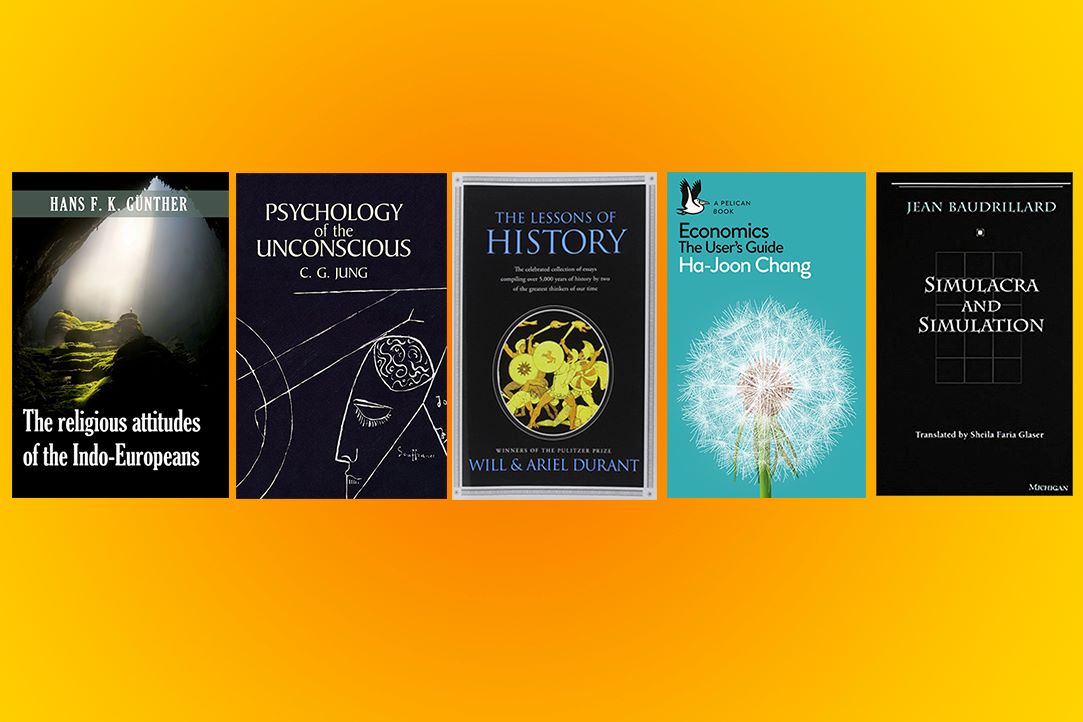5 Spectacular Books For Humanitarians

Summer is usually the time when you can read books you don't have time during the school time. We offer you a selection of literature that would explain fundamental principles of some social sciences.
The Lessons of History: Patterns of Civilization over 5000 Years, Will Durant, Ariel Durant
The authors, professional historians and academic scientists, have revealed the laws of social and historical development, the cyclical nature of the historical process and the finiteness of any socio-economic system. Based on their research and on a philosophical approach, they very figuratively and fascinatingly talked about the way that Western civilization went (from the origins to the beginning of the 19th century) and why its path was made up of exactly these milestones.
Economics: The User's Guide, Ha-Jung Chang
In this book, Cambridge economist Ha-Jung Chang explains in an entertaining and accessible way how the world economics works under real conditions. Chang provides ideas that cannot be found in textbooks on economics. He narrates with a deep knowledge of history, wit, and a slight neglect of traditional economic theories.
Unlike many economists who offer one look at their subject, Chang examines many theories, from classical to Keynesian, showing the advantages and disadvantages of each of them, and convincingly demonstrates that there is no single correct approach to explain the functioning of the economy. Instead of one “correct” theory, the author offers a set of tools that will help you better understand how the modern economy functions in a global world where everything is interconnected.
Simulacra and Simulation, Jean Baudrillard
This book is the most complete and readable book of similar subjects with which you can begin to dive into the world of modern philosophy. The author gives the most detailed definitions of such concepts as “hyperreality” and “simulacra”, which have long been included in mass use. This work has helped many people around the world look at our reality from a fundamentally different side, from the point of view of recognizing it as fictitious, fake, “copy of copy”, an illusory substance, and also inspired filmmakers to create the cult film “The Matrix”.
The Religious Attitudes of the Indo-Europeans, Hans Gunther
Author is trying to identify the pre-Christian religiosity of the Europeans through a comparative analysis of the manifestation of religious feelings among the peoples of the continent. In his consideration of the local religiosity, Gunter touches upon such issues as the European concept of fate and the universal world order, the relationship of man with the gods, the attitude to nature in a religious aspect, the idea of freedom as an expression of the inner essence of the Europeans. The book is valuable as a key to understanding of pre-Christian European philosophy.
Psychology of the Unconscious, Carl Jung
The book consists of two volumes of Carl Jung’s works, revealing the main provisions of his analytical psychology. The collection contains essays on which modern psychology has largely grown: “Psychoanalysis”, “Theory of Eros”, “Another point of view: the will to power”, “The problem of the type of attitude”, “Personal and collective unconscious”, “A synthetic or constructive method”. The work is as important for acquaintance with the basics of psychology as Freud's Introduction to Psychoanalysis, but closer to the modern understanding of the subject.
Text by
Ivan Voznesensky
